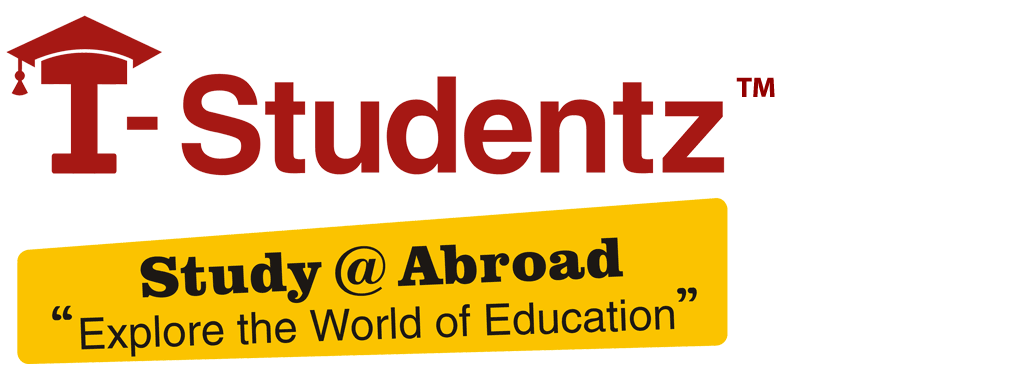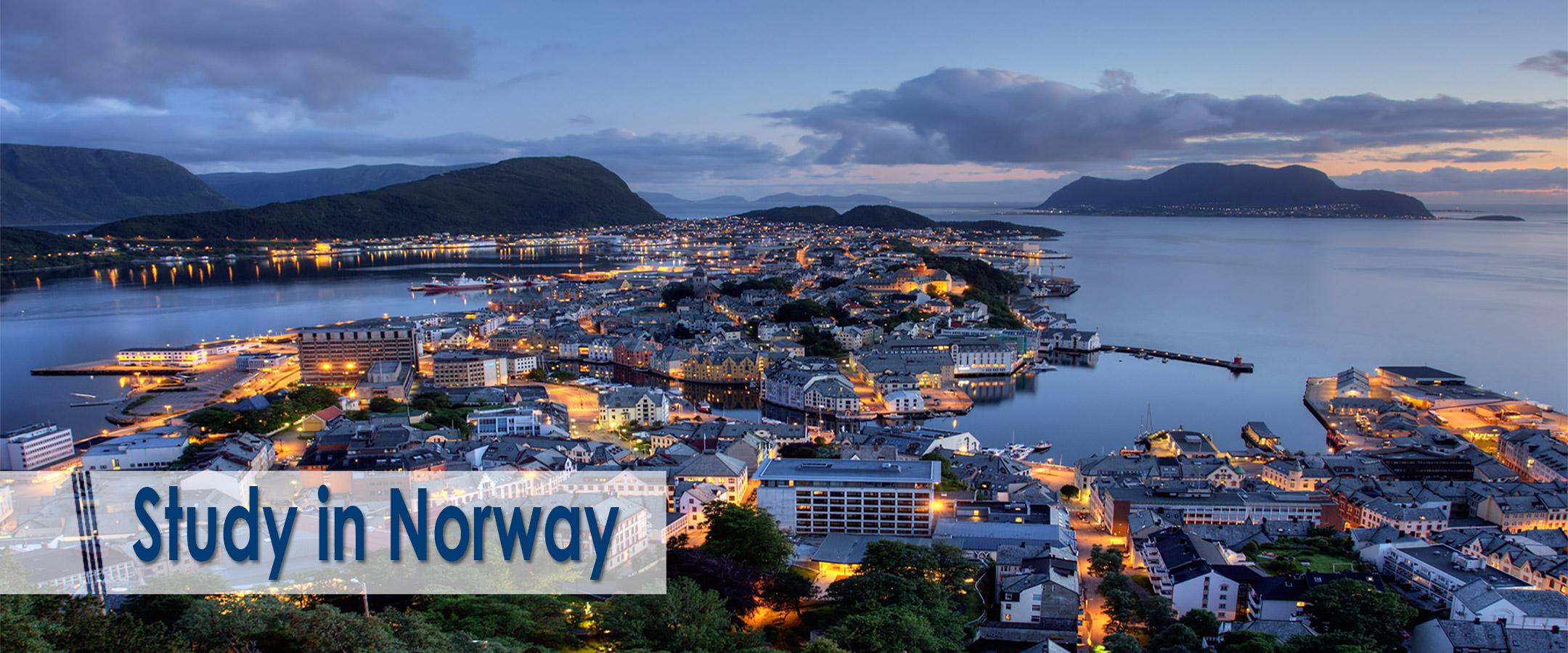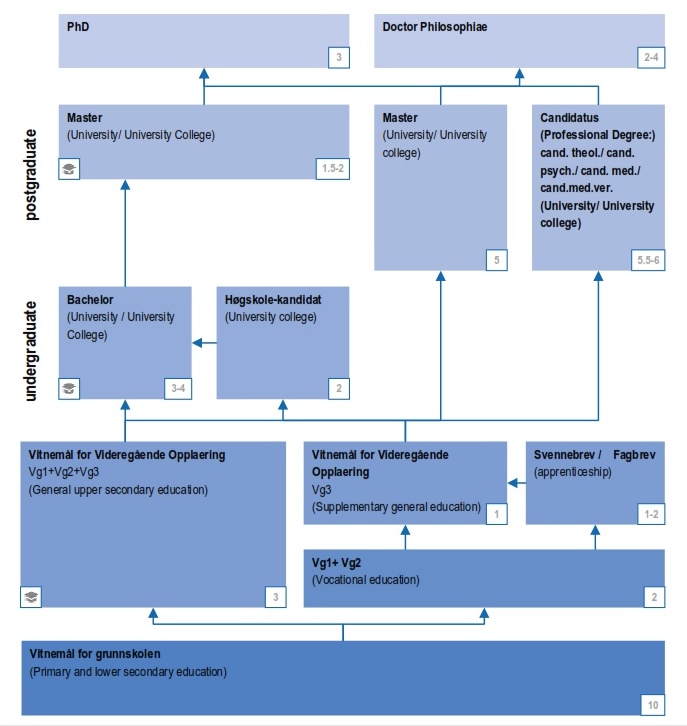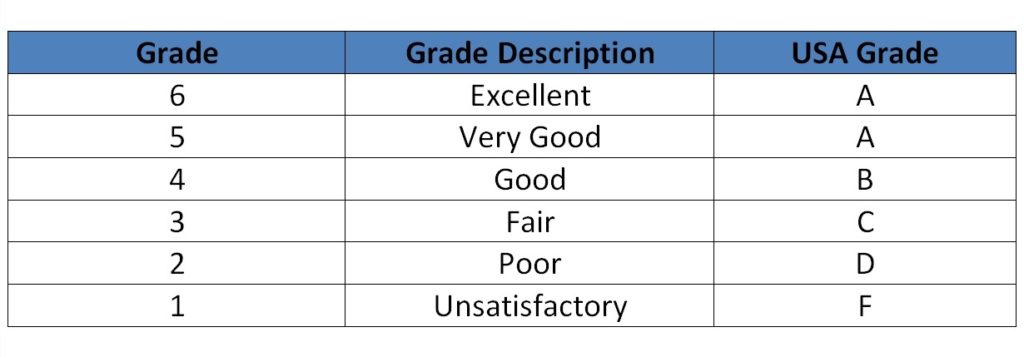Higher Education in Norway
The Norwegian system of higher education comprises all the institutions and/or programmes that are accredited. With the exception of some private university colleges, all higher education institutions are state-run. In general, tuition is not required for study at Norwegian higher education institutions, although fees may be imposed for certain professional education programmes, further and special education programmes and studies at private institutions.
Structure of Higher Education in Norway:
Grading System:
Types of Higher Education Institutions:
University:
The Universities focus on theoretical subjects such as arts, humanities/liberal arts, natural science, Supply bachelor, Masters and PhD titles. Universities also run a number of professional studies, including law, medicine, dentistry, pharmacy and psychology.
University College:
The university colleges have a significant role in decentralizing access to higher education. They provide professional programs of varying lengths, from one to five years. Several university colleges offer master’s programs and also sustain right to award doctorates in one or more fields.
Private Institutions:
The private institutions offer programs and courses within popular fields of study where the number of public places is limited or offering accelerated courses. Tend to specialize in popular subjects with limited capacity in public schools, such as business management, marketing or fine arts.
Types of Degrees:
Bachelor’s Degree:
The bachelor programmes provide students with a broad academic foundation as well as specialist knowledge combined with theoretical, applied and analytical skills. This degree programmes are offered by universities, university colleges and institutions with accredited programmes. Since the introduction of the 3+2+3 model, bachelor’s degree programmes are usually 3 years in length (180 ECTS). One exception to this is the 4-year bachelor’s degree in teaching offered at university colleges. This is also called as the first cycle of higher education.
Master’s Degree:
A master’s degree programme is usually a two-year course of studies (120 ECTS credits). The master programmes builds on academic specialization in the bachelor’s degree and includes independent work. It provides students with a broad academic foundation as well as specialist knowledge combined with theoretical, applied and analytical skills. To get admission into this, required a bachelor’s degree. This is also called as the second cycle of higher education.
PhD / Doctorate Degree:
The PhD degree is based on a master’s degree or equivalent qualification and is the highest academic degree in Norway. The study programme must be based on independent research conducted in cooperation with academic supervisors and other researchers, and it can be carried out within the framework of a researcher training programme. This is also called as the third cycle of higher education.
